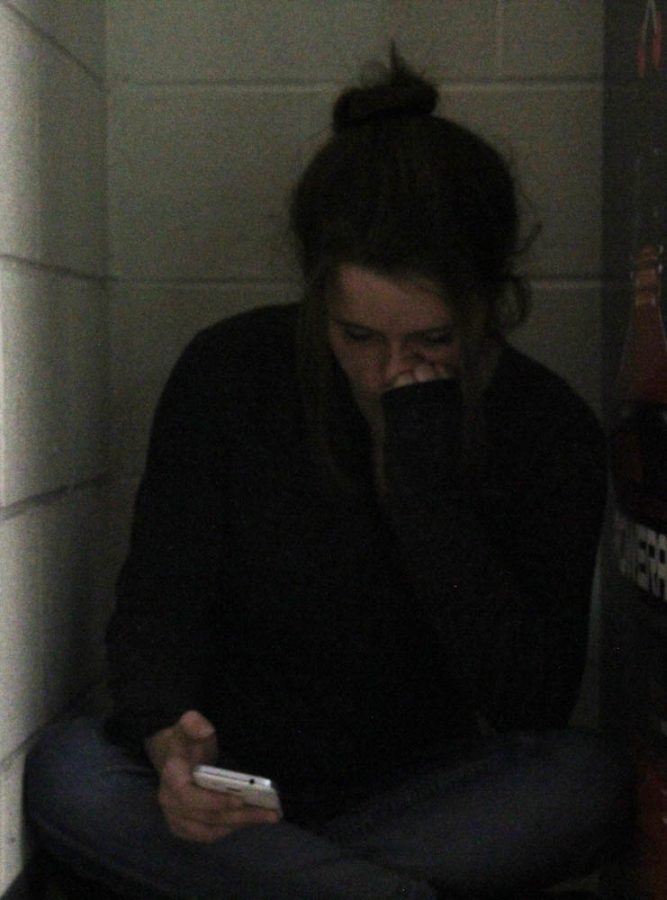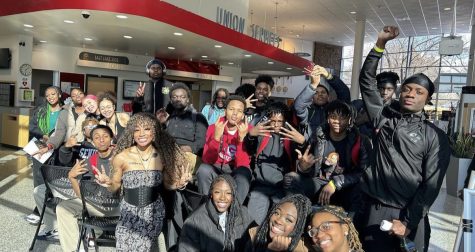It’s time to shut down cyber-bullying
IN TODAY’S pop culture, it’s a growing trend to become sarcastic and discouraging to each other. In groups of friends, teenagers are constantly in the attitude of burning each other and giving each other snarky remarks.
In many situations, this is both healthy and normal, however, when these forms of bonding are copied and pasted into social media, they turn into harsh words with no teasing grins and insults with no lighthearted laughter.
Lanoy Phouangphrachanh (11) has shut down an instance of cyberbullying in a group chat with her close friends. “Me and my friends were all close,” she said. “He was the only guy in the group chat and everyone makes fun of him because he’s Russian and he shows us pictures of his abs.”
Out of nowhere, one of her friends began to mock him, saying things like “Oh, you’re just a stick” and “You’re never gonna be big and grown up.” Phouangphrachanh soon received a private text from the boy, telling her that he was crying and he needed her help.
Phouangphrachanh agreed to help him and had him leave the group chat to speak to their friends and told them that they had crossed a line. This stopped the bullying. It was just one mistake, and, perhaps in person, the gibes might have been less hurtful because of facial cues and vocal tone.
In this situation, Phouangphrachanh’s friend had the right idea. If one is being bullied or picked on over social media, they should privately message someone who may be able to stick up for them. If the people who are picking on said person don’t let up after a peer’s intervention, then the best option is to block, unfriend, or unfollow these people.
However, preventing oneself from being a cyber-bully is also an important skill to have in today’s internet society. 52% of teenagers report being cyber-bullied, so the actual bullying has to come from somewhere.
“To make themselves look more superior, or better than the other person,” Melanie Dutton (10) commented in a post about why people cyber-bully other people. In a Facebook poll for a group of kids attending Granger. Students said that, out of all the comments on social media, they mostly saw positive comments, but a close second was angry and critical comments.
People feel cyber-bullied when they are prosecuted about their posts on social media and others disagree with them and believe that they should share their disagreement in the form of an angry or degrading comment on their posts.
To avoid being a cyber-bully, when people see an opinion they clash with, they could refrain from commenting negatively on that post and, instead, create their own post cultivating their own opposing opinion and tag the person they disagree with in it.
This tactic is typically a win-win situation. The people who disagree with their Facebook friend sound less insulted and the other person feels less attacked for stating an opinion. This can work with any form of social media.
No matter where people are on the internet, they’re going to fight. There will always be contention, but there will always be a way to block it all out. Students can make social media less personal when they see things they don’t agree with. Together, Granger students can make both the halls and chat rooms better places by behaving with respect toward others.






